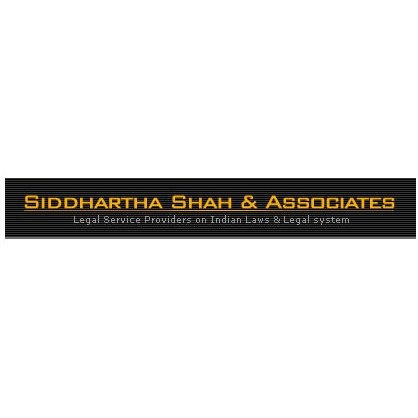Best ADR Mediation & Arbitration Lawyers in India
Share your needs with us, get contacted by law firms.
Free. Takes 2 min.
Or refine your search by selecting a city:
List of the best lawyers in India
About ADR Mediation & Arbitration Law in India
Alternative Dispute Resolution (ADR) encompasses various methods like mediation and arbitration that serve as alternatives to traditional litigation for resolving disputes. In India, ADR is gaining prominence due to the overburdened court system and the need for faster, more efficient resolution methods. The Arbitration and Conciliation Act, 1996, governs these processes, aligning with international conventions such as the UNCITRAL Model Law on International Commercial Arbitration. ADR is used in commercial disputes, family disagreements, consumer issues, and more. The emphasis is on mutual consent, privacy, and binding awards in arbitral cases.
Why You May Need a Lawyer
Engaging a lawyer is beneficial in numerous ADR scenarios:
- To understand the nuances of arbitration agreements before entering into contracts
- When drafting mediation or arbitration clauses in commercial agreements
- To represent and guide you through arbitration proceedings
- For enforceability issues concerning arbitral awards or mediation settlements
- If there is a need to challenge or appeal an arbitral award in court
- To help navigate complex multi-party disputes requiring specialized legal expertise
Local Laws Overview
In India, the Arbitration and Conciliation Act, 1996, is the legislative framework for ADR. The Act was amended in 2015 and 2019 to expedite arbitration proceedings and enhance India's position as an arbitration-friendly jurisdiction. Key aspects include:
- Clear guidelines for the appointment of arbitrators
- Timelines for resolution to ensure swift proceedings (within 12 months, extendable by 6 months)
- Provisions for interim relief by arbitral tribunals and courts
- Recognition and enforcement of foreign arbitral awards under the New York Convention and the Geneva Convention
- Confidentiality clauses to protect sensitive information during mediations
Frequently Asked Questions
What is ADR?
ADR stands for Alternative Dispute Resolution. It refers to techniques such as mediation and arbitration used to resolve disputes outside the court system.
What are the benefits of using ADR?
ADR offers benefits like reduced costs, time savings, privacy, flexibility, and preserving relationships compared to traditional litigation.
Is mediation binding in India?
No, mediation itself is non-binding unless the parties reach a settlement that they agree to make binding. The settlement agreement can then be enforced as a contract.
What distinguishes mediation from arbitration?
Mediation involves a neutral third party facilitating a settlement between disputing parties without making decisions, whereas in arbitration, a neutral third party makes a binding decision after hearing arguments.
How long does the arbitration process take?
Contracts often specify the timelines; the Arbitration and Conciliation Act provides for a 12-month period to complete arbitration, which can be extended by 6 additional months with party consent.
Can foreign companies use arbitration in India?
Yes, foreign companies can engage in arbitration in India, and foreign arbitral awards are recognized and enforceable in India under international conventions.
What happens if one party is dissatisfied with an arbitral award?
A party can challenge an arbitral award in court on limited grounds such as incapacity of a party, invalidity of the arbitration agreement, or if it is against public policy.
Is legal representation required in ADR processes?
While not mandatory, legal representation is advisable to aid in navigating legal complexities, document drafting, and enforcing arbitral awards or mediation settlements.
What is the role of the judiciary in arbitration in India?
The judiciary's role in arbitration is primarily supportive, assisting in the appointment of arbitrators, interim measures, and enforcing or setting aside awards.
Can parties choose the location for arbitration proceedings?
Yes, parties can mutually agree upon the 'seat' or 'venue' for their arbitration proceedings, allowing flexibility in choosing jurisdiction and applicable procedural laws.
Additional Resources
Below are some helpful resources and bodies related to ADR in India:
- Indian Council of Arbitration (ICA): Offers arbitration services and resources.
- Delhi Dispute Resolution Society (DDRS): Provides mediation services for a wide range of disputes.
- Ministry of Law and Justice, India: Governs legal affairs, including ADR mechanisms in India.
- National Lok Adalat: Facilitates resolution of disputes at the national and state levels through conciliatory procedures.
Next Steps
If you require legal assistance in ADR Mediation & Arbitration:
- Consult a legal expert specializing in ADR to discuss your specific situation and explore your options.
- Gather all related documents and evidence pertaining to your dispute to provide your lawyer a comprehensive understanding of the case.
- Consider drafting or revisiting existing arbitration or mediation clauses in business contracts to ensure clarity and enforceability.
- Identify your goal-whether it’s a binding decision, settlement, or renegotiation-to better guide your legal strategy and approach.
- Attend all scheduled ADR sessions and actively participate to ensure a more favorable outcome.
Lawzana helps you find the best lawyers and law firms in India through a curated and pre-screened list of qualified legal professionals. Our platform offers rankings and detailed profiles of attorneys and law firms, allowing you to compare based on practice areas, including ADR Mediation & Arbitration , experience, and client feedback.
Each profile includes a description of the firm's areas of practice, client reviews, team members and partners, year of establishment, spoken languages, office locations, contact information, social media presence, and any published articles or resources. Most firms on our platform speak English and are experienced in both local and international legal matters.
Get a quote from top-rated law firms in India — quickly, securely, and without unnecessary hassle.
Disclaimer:
The information provided on this page is for general informational purposes only and does not constitute legal advice. While we strive to ensure the accuracy and relevance of the content, legal information may change over time, and interpretations of the law can vary. You should always consult with a qualified legal professional for advice specific to your situation.
We disclaim all liability for actions taken or not taken based on the content of this page. If you believe any information is incorrect or outdated, please contact us, and we will review and update it where appropriate.
Browse adr mediation & arbitration law firms by city in India
Refine your search by selecting a city.















